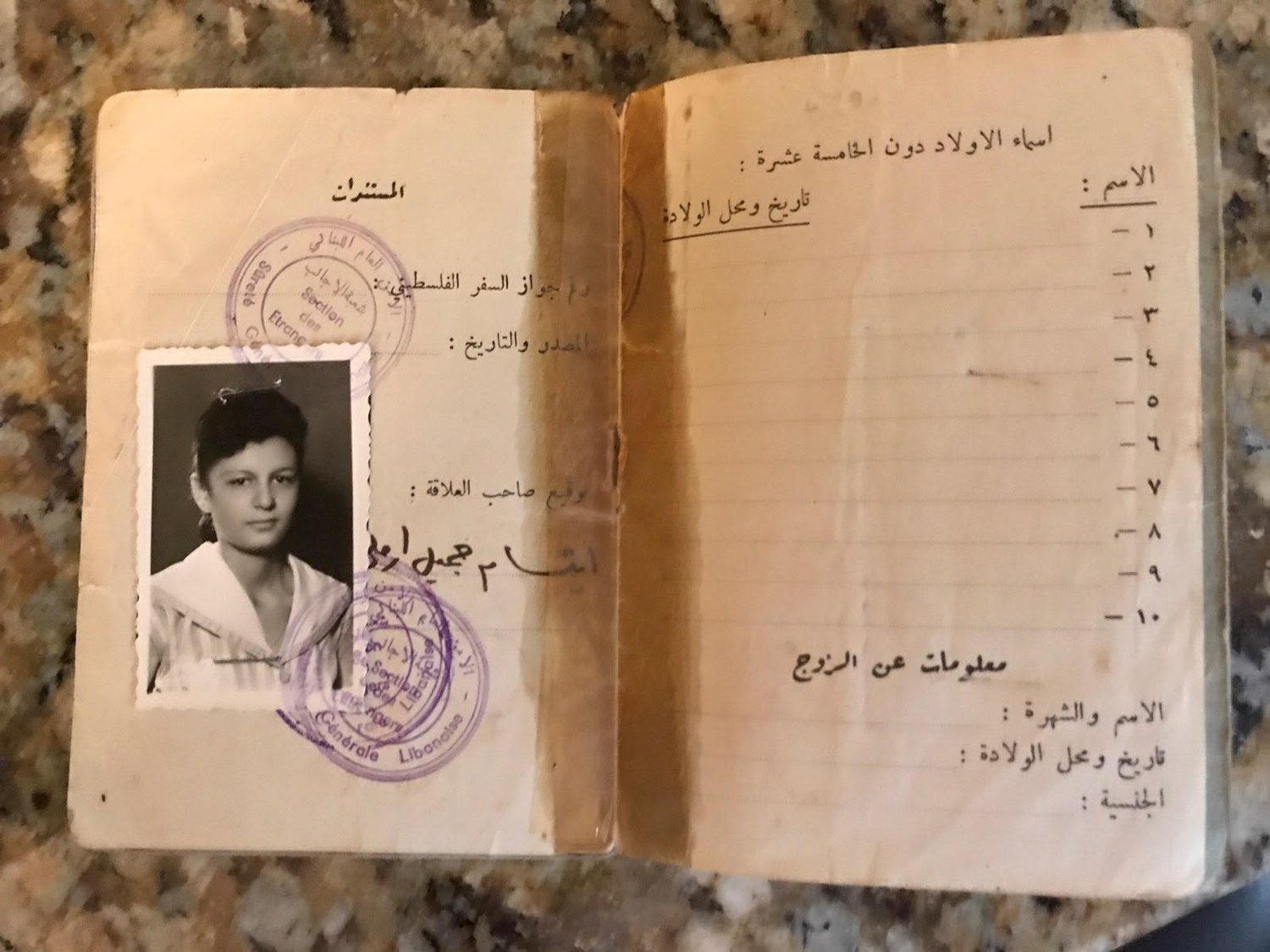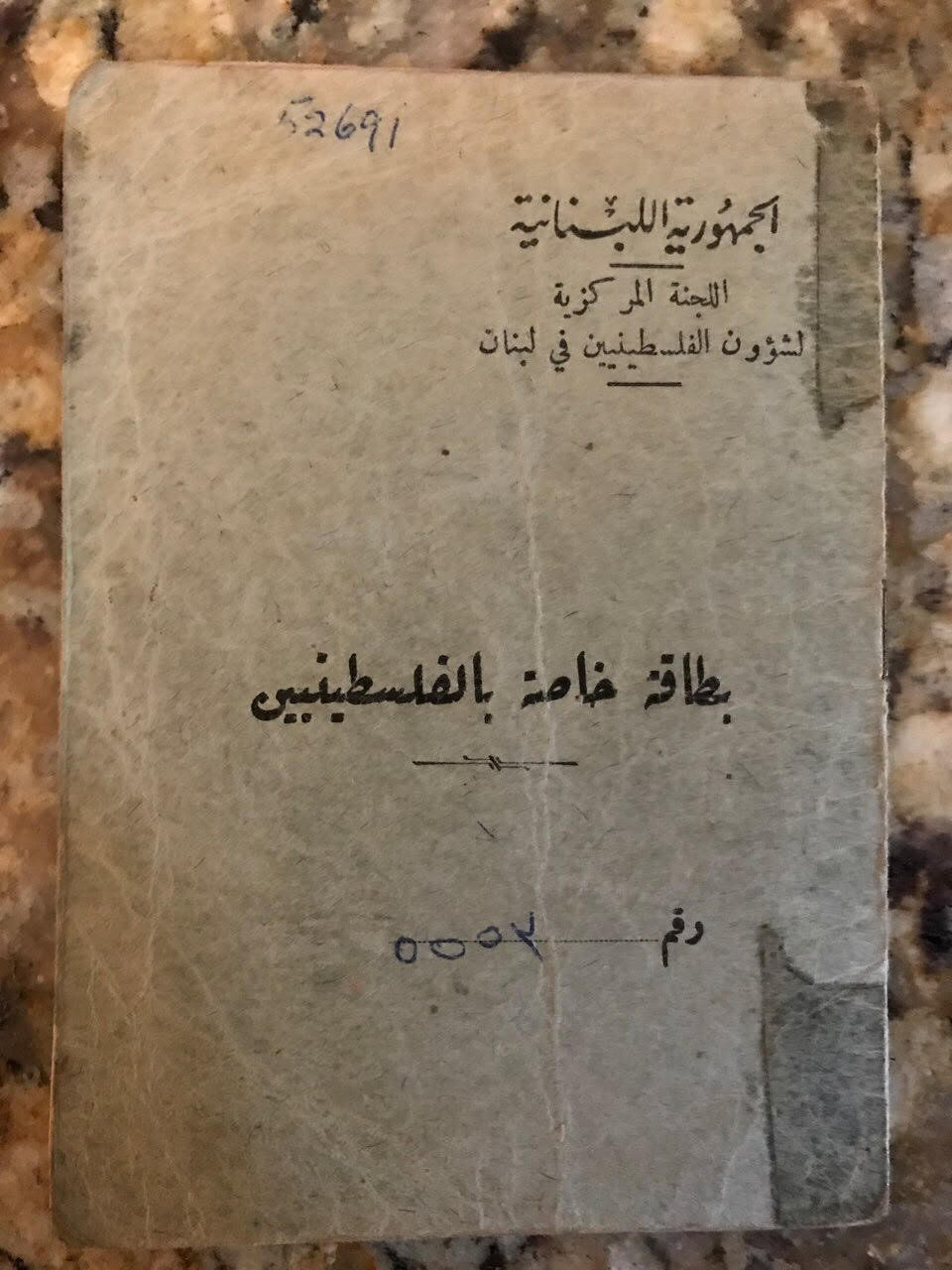Ibtissam's message to the US administration: "Think of the children and their future"
“UNRWA is not a political thing — it’s helping the refugees, the children, the women, through health care, through schooling, through everything.”
Ibtissam Rizkallah was born in Shefa Amr, a city east of Haifa in 1944. At the age of 4, the Nakba began. Ibtissam and her family were forced to flee to Lebanon. Like many Palestinian families, at the time, they saw this as a temporary way to escape conflict and insecurity -- and thought they would remain in Lebanon for just a few months until it was safe to return home. And like many Palestinian families, this sadly did not turn out to be the case.
Ibtissam’s family -- at the time consisting of her three brothers and sisters, her father, and her mother, who was expecting another child -- took their one car and rented a house in Kafr Shima, Lebanon. A few months passed and they realized going home was not a reality in sight. Her father had to sell their car to make ends meet. They relocated to northern Lebanon, where her mother had some family, but moved from one house to the next due to financial difficulties.
Prior to 1948, Ibtissam’s father and uncle owned a small taxi company in Palestine where they shuttled people from Shefa Amr to Haifa. Due to the labor laws in Lebanon, Ibtissam’s father, as a Palestinian, could not continue his taxi business. He did, however, find employment through the newly established UNRWA, where he worked as a truck driver, transporting flour and foodstuffs to various refugee camps in Lebanon.
Her father was not the only one who looked to UNRWA as a pillar of support during a tumultuous time. Ibtissam credits most of her family’s education to UNRWA. Living in Ashrafiyeh in eastern Beirut, Ibtissam and her siblings went to a school run by nuns, where UNRWA funded their tuition. Every one of Ibtissam’s sisters received higher education through UNRWA, whether that was through an UNRWA scholarship at the American University of Beirut or through typing and secretarial courses held at the local YMCA.
Ibtissam, graduating from the Gaza Baptist School of Nursing in 1962
While her father was working as an UNRWA driver, a Swedish woman named Ms. Kanstron, who was responsible for UNRWA’s education programming at the time, mentioned a reputable nursing program in Gaza, strongly encouraging him to consider enrolling one of his children in the program. When Ibtissam’s father approached Ibtissam’s older sister about it, Ibtissam asserted that if her sister was going to enroll in the program, she wanted to do so, as well. So, in the fall of 1959, the two sisters went to Gaza to begin their three-year training at the Gaza Baptist School of Nursing.
UNRWA provided them with a small stipend to supplement their tuition, and they were able to study without worrying about their finances.
With some sadness in her voice, Ibtissam says, "Gaza was different back then. The Gazan people were more safe and they did not have the same brutal travel restrictions that they do today. I feel for those people. They have a special place in my heart, and it’s difficult to see their conditions today."
Reflecting on her own experiences with UNRWA in the context of the current politicization of refugee rights, she says, "UNRWA is not a political thing -- it's helping the refugees, the children, the women, through health care, through schooling, through everything."
Ibtissam, her children, and grandchildren visiting Ramallah, Palestine in 2014
It was thanks to her nursing certificate from the program in Gaza that she was able to pursue a career in nursing in the US. Ibtissam married a fellow Palestinian, originally from Ramallah, living in the US. She left Beirut and traveled to live with him in Maryland in December 1967. When she came to the US, she initially chose to take care of the four young children they had together as opposed to working. Once her youngest son turned 5, she learned that in order to work as a nurse in the States all she needed to do was pass an American test and she'd be certified to practice in the US. So that's what she did and Ibtissam started working part-time in 1984. As a busy working mother, she would work evenings so that she could spend time with her family during the day.
When her husband passed in 1993, Ibtissam had to work full time to support her family. She credits her UNRWA degree to allowing her to support herself and her children in the absence of her husband’s salary and helping her land her first job in the US.
Ibtissam feels grateful for the role UNRWA played in her life -- that despite the heart-wrenching circumstances of being ripped away from her homeland, she and her family had a support system that they could lean on to reach their full potential outside of Palestine.
In response to the US' unprecdented decision to cut funding to UNRWA by 83%, she asserts:
“When they [the US Administration] withhold money, they need to think of the children and their future. UNRWA does a lot of good for a lot of people, and I know so many people who got their higher education through UNRWA. Right now, it’s essential to make sure kids are educated to give them hope for the future.”




